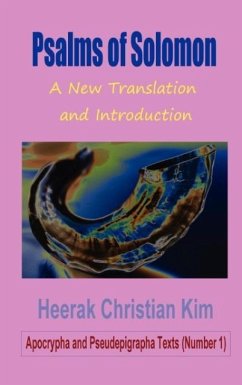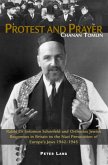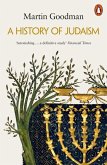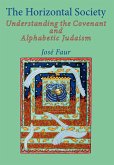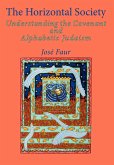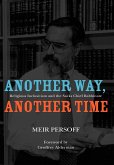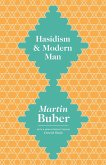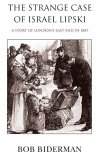Psalms of Solomon is an ancient Jewish writing from the Second Century BC. As a primary source written by a Jewish writer living during the turmoil of the desecration of the Jerusalem Temple by King Antiochus IV Epiphanes of Syria, who forced Jews to eat non-kosher food, abstain from circumcision, and break the Sabbath Day, Psalms of Solomon accurately depicts the angst and trepidation that seized the whole Jewish populace in Jerusalem. Although the poet-composer of Psalms of Solomon witnessed the eventual victory of Jews over the Syrians in Jerusalem along with other Jewish survivors, he did not see the victory of the Hasmonean Revolt and the Maccabees as a total victory. The Maccabees kicked out the Zadokite priests from the leadership of the Jerusalem Temple when they rededicated the Temple. This Temple leadership of the descendants of Zadok , who was the first High Priest of the Jerusalem Temple, was established by King Solomon and maintained by the descendants of King Solomon. It was understood that the Zadokites continue to be the leaders of the Jerusalem Temple in the Second Temple Period, after returning from the Exile and rebuilding the Jerusalem Temple destroyed by the Babylonians. King David and his descendants would rule over Israel forever, and the Zadokites would be the High Priests of the Jerusalem Temple forever. When the Hasmoneans rededicated the Jerusalem Temple without Zadokite priests in Jerusalem Temple leadership, it was going against tradition held for hundreds of years. But the Jerusalem Jewish populace went along with the Maccabean program of placing their own in the office of the High Priest and top leadership in the Jerusalem Temple against long-held Jewish tradition. The military victory over Syrians made them untouchable heroes. And in the lapse of continuity with past tradition in terms of Jerusalem leadership, the Hasmoneans were not only able to seize the office of the High Priest, but they managed to set in motion the usurpation of kingship by the Hasmoneans. Psalms of Solomon was written by a Zadokite in protest of all that was happening in Jerusalem. The poet-composer wanted the Zadokites back in position in the Jerusalem Temple, as has been the tradition for hundreds of years. But the Zadokite poet-composer could not write a blatant condemnation of the Hasmoneans because the Hasmoneans were already entrenched in their power positions. Thus, the Zadokite poet-composer wrote Psalms of Solomon using metaphors and symbolic language that couched his propaganda for the Zadokites.
Hinweis: Dieser Artikel kann nur an eine deutsche Lieferadresse ausgeliefert werden.
Hinweis: Dieser Artikel kann nur an eine deutsche Lieferadresse ausgeliefert werden.

